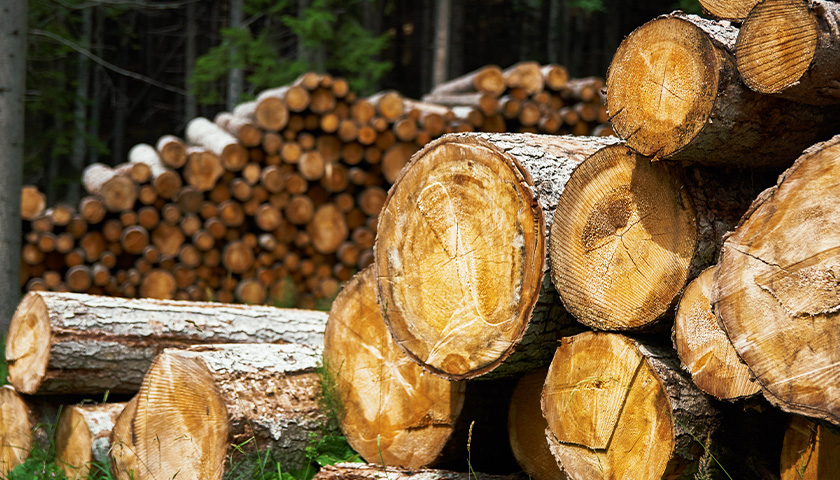by Morgan Sweeney
Southwestern Virginia is set to benefit from a $7.5 million expansion of Musser Biomass and Wood Products, bringing new, high-paying jobs to the area and more than doubling its production of dried hardwood chips and sawdust.
Musser’s parent company, Musser Lumber Company, has contributed to the Wythe County economy since 1968 when it was founded, and today has customers across the country and worldwide. The company specializes in preparing hardwood lumber for flooring and paneling, and sources lumber from dozens of regional sawmills.
“Virginia’s forestry industry adds more than $23 billion to the Commonwealth’s economy and employs over 108,000 Virginians, making it our third-largest private sector industry,” said Gov. Glenn Youngkin. “Supporting companies like Musser Biomass and Wood Products helps to keep this industry strong and also spurs economic development in our rural communities.”
Through its expansion, not only will the company’s production capacity increase, but its demand for hardwood residuals will increase, which will “create a new market for this operational byproduct,” according to a press release from the governor’s office.
“We continue to execute our long-term plans to make Musser Biomass and Wood Products the top source for hardwood fiber solutions in the biomass industry,” said company President Ed Musser.
The county and commonwealth will also provide additional funding to the expansion through a grant program called the Governor’s Agriculture and Forestry Industries Development Fund, a program established in 2012 as a means of supporting agriculture and forestry “value-added or processing projects.”
The county bases its contribution on what the expansion’s local return on investment will be – the taxes that will be collected and the number of jobs that will be created – and then, through AFID, Virginia matches that contribution.
In Musser’s case, the county and state each supply $75,000 for a total grant of $150,000.
Musser is now a two-time AFID award recipient. The first time it received an AFID grant was in 2020. That funding went toward the purchase of a state-of-the-art, high-efficiency wood residual drying system, which processes thousands of tons of wood fiber annually, “all while using 30% less energy and producing less dust and volatile organic compound pollution,” according to the release.
– – –
Morgan Sweeney is a staff writer covering Virginia and Maryland for The Center Square. Morgan was an active member of the journalism program as an undergraduate at Hillsdale College and previously freelanced for The Center Square.
Photo “Lumber” by Nicola Pavan.








